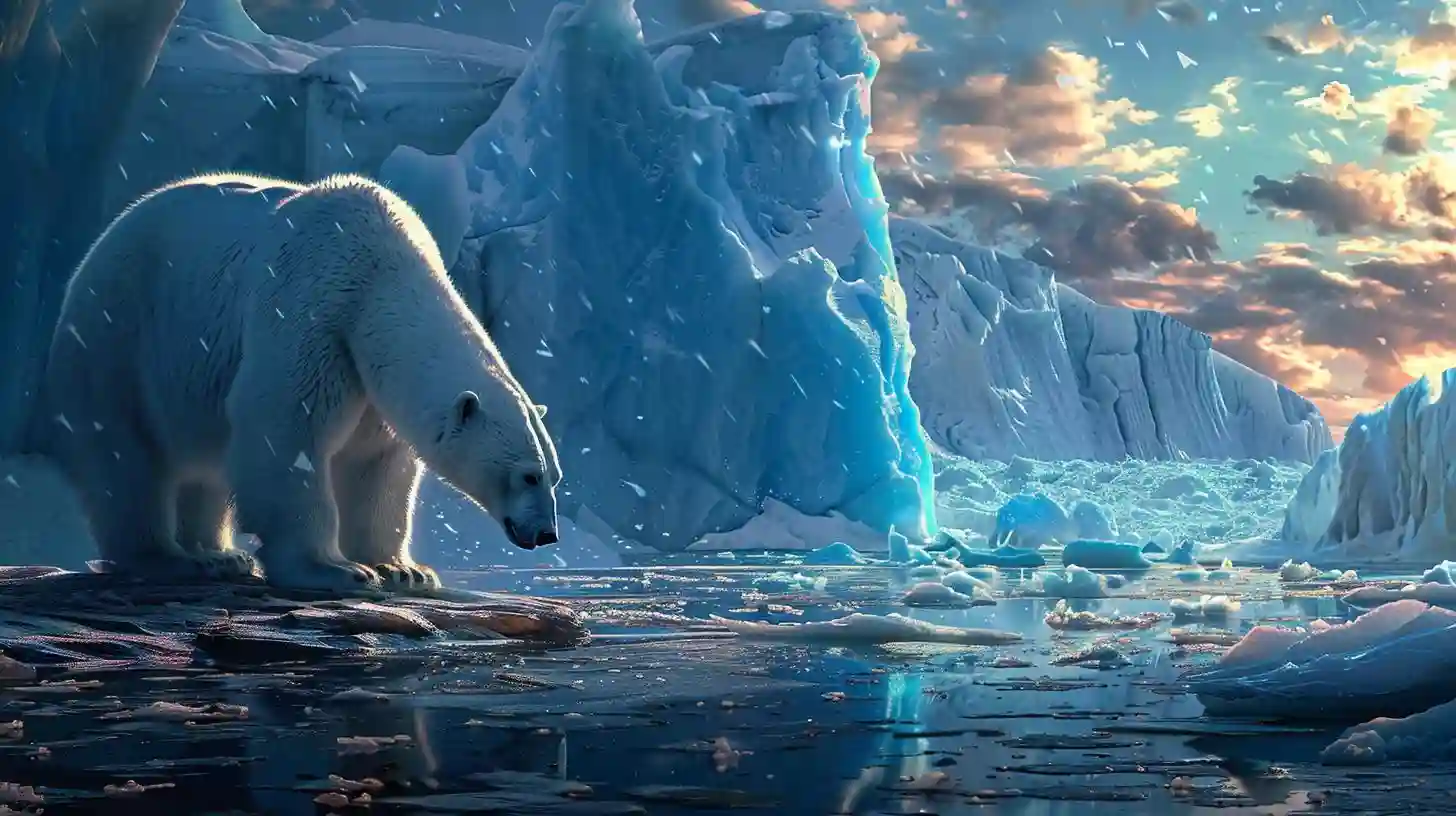
Polar bears are one of the most iconic and majestic creatures on our planet. With thick white fur, enormous size and incredible strength, they are the undisputed kings of the Arctic. These magnificent animals have adapted to life in one of the harshest environments on Earth, surviving extreme cold, harsh winds and long periods of darkness.
However, despite their impressive adaptation, polar bears are facing a crisis they have never faced before. Climate change is causing sea ice, which polar bears use to hunt seals, their main source of food, to rapidly melt. As ice disappears, polar bears are forced to travel long distances in search of food, leading to increased stress levels, malnutrition and decreased reproductive success.
The plight of polar bears is a powerful reminder of the devastating impact of human activity on the natural world. The burning of fossil fuels has caused global temperatures to rise rapidly, causing Arctic ice to melt at an alarming rate. Scientists predict that if current trends continue, two-thirds of the world's polar bear population could become extinct by the end of the century.
In addition to disappearing sea ice, polar bears face other threats including pollution, habitat destruction and overhunting. Chemical pollutants such as mercury and PCBs accumulate in the Arctic ecosystem, poisoning not only polar bears but also their prey. Industrial activities such as oil and gas drilling are encroaching on polar bears' habitat, further reducing their ability to find food and mate.
Efforts are being made to conserve polar bears and their habitat, but more needs to be done to ensure their survival. Governments, scientists and environmental organizations are working together to raise awareness of the plight of polar bears and implement measures to reduce global greenhouse gas emissions. Efforts are also being made to create protected areas where polar bears can roam freely without fear of human interference.
One of the key challenges of conservation efforts is to find ways to mitigate the effects of climate change on polar bears. While reducing greenhouse gas emissions is important, it is also important to find ways to help polar bears adapt to a changing environment. This could include creating artificial feeding areas, creating wildlife corridors to connect fragmented habitats, and implementing measures to reduce human-bear conflicts.
Another important aspect of polar bear conservation is scientific research. Scientists are studying the behavior, physiology and ecology of polar bears to better understand how they are affected by climate change and other threats. This knowledge is critical to developing effective conservation strategies and informing policy decisions.
There have been some positive developments in polar bear conservation in recent years. In 2008, the United States listed the polar bear as a threatened species under the Endangered Species Act, providing greater protection to the species and its habitat. The Arctic Council, an intergovernmental forum of Arctic states, also adopted a conservation action plan for polar bears aimed at addressing the threats they face and promoting their long-term survival.
Despite these efforts, the future of polar bears remains uncertain. Loss of sea ice poses a serious threat to their survival, and without significant measures to reduce greenhouse gas emissions, polar bears could disappear from the Arctic within our lifetime. It is critical that we act now to protect these magnificent animals and the fragile ecosystem they call home.
Polar bears are facing a crisis they have never faced before. Climate change, pollution, habitat destruction and overhunting all threaten their survival. Efforts are being made to conserve polar bears and their habitat, but more needs to be done to ensure their long-term survival. By working together to reduce greenhouse gas emissions, protect their habitat and raise awareness of their plight, we can help secure the future of polar bears in the Arctic. We have a responsibility to act now to save these iconic creatures before it's too late.